Spring Back into Motion: Preventing Overuse Injuries
As flowers bloom and the days get longer, it’s natural to want to get outside. Whether you’re digging in your garden, hitting the trails, or playing sports, spring brings new energy. But if you were inactive this winter, your body might not be ready for a sudden burst of activity.
What Are Overuse Injuries?
Overuse injuries happen when we do too much, too soon, or too often. These aren’t injuries from a fall or sudden twist. Instead, they build up slowly from repeating the same movements over and over. Common symptoms of overuse injuries include:
- Muscle soreness that doesn’t go away
- Painful joints that ache when moving
- Tendons that feel tender to touch
- Swelling that doesn’t go down
Why Spring Can Be Risky
After winter, many of us jump back into activities at full speed. Our bodies aren’t prepared for this sudden change. Think about it:
- We’ve been less active during cold months
- Muscles might be weaker or tighter
- Our stamina isn’t what it was last fall
- We’re excited about the nicer weather and may do too much at once
5 Simple Ways to Prevent Injuries
1. Start Slow
Begin with just 15-30 minutes of your activity.
Add a little more time each week – 10% is a good guideline. Your body needs time to adjust!
2. Warm Up Right
Never skip your warm up.
Take 5-10 minutes to walk, do gentle stretching, and move your joints before any activity.
3. Mix It Up
Don’t do the same activity every day.
Trying different things will let you use new muscle groups and give others rest.
4. Listen to Your Body
Pain is a warning sign.
If something hurts, stop and rest. A little muscle soreness is normal, but sharp pain isn’t.
5. Use Good Tools and Form
For gardening, use tools with padded handles and kneel instead of bending. For sports, make sure your gear fits well and learn proper form.
Your Physical Therapist Can Help
Your PT is your body’s best friend when getting active again. We can:
- Check your movement patterns to spot problems before they cause pain
- Create a safe plan to build strength and flexibility
- Teach you specific exercises for your favorite activities
- Show you proper form to prevent strain
- Help you recover if you do get hurt
Don’t let an injury stop you from enjoying spring! With a little care and the right help, you can stay active and pain-free all season long.
Call our office today to schedule a spring check-up – your body will thank you!
